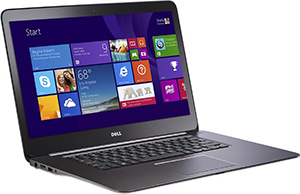Buster
Federal Judge Unseals FBI Search Warrant For Huma Abedin's Laptop

Two days after FBI Director James Comey wrote Congress to disclose the apparent discovery of additional Hillary Clinton e-mails, the bureau told a federal judge that a review of the material would likely produce evidence of the improper handling of classified material, court records show.
In fact, a subsequent FBI analysis of the e-mails determined that the correspondence--found on a laptop shared by Clinton aide Huma Abedin and her husband Anthony Weiner--contained no information to alter the previous FBI conclusion that Clinton should not face charges in connection with her use of a private e-mail server when she was Secretary of State.
The FBI’s justification for reviewing thousands of e-mails found on the Dell Inspiron laptop--which was seized in connection with a sexting probe targeting  Weiner--are contained in a search warrant application that was unsealed (with redactions) today in U.S. District Court in Manhattan.
Weiner--are contained in a search warrant application that was unsealed (with redactions) today in U.S. District Court in Manhattan.
The FBI’s October 30 search warrant application, which was approved by Magistrate Kevin Fox, was prepared and filed by Department of Justice prosecutors.
Click here to download a PDF of the 21-page court filing.
According to an affidavit sworn by an FBI supervisor whose name was redacted from the filing, investigators contended that there was probable cause to believe that the Abedin/Weiner laptop contained “evidence, contraband, fruits and/or other items illegally possessed” in violation of criminal statutes dealing with the handling of sensitive “national defense” material.
Noting that the Dell laptop contained thousands of Abdein e-mails, the FBI concluded that the cache included correspondence exchanged by Abedin and Clinton and that there was probable cause to believe that those e-mails contained “classified information which was produced by and is owned by the U.S. Government.” The laptop, the FBI added, “was never authorized for the storage or transmission of classified or national defense information.”
A “complete forensic analysis” of the Dell computer, the FBI affidavit stated, would allow federal agents to “determine if classified information was accessed by unauthorized users or transferred to any unauthorized systems.”
Following a review of the laptop, Comey issued a follow-up letter on November 6--two days before the presidential election--reporting that no evidence had been discovered to change the bureau’s prior finding that "no reasonable prosecutor" would file charges against Clinton.
Though the names of Abedin and Weiner have been redacted from the documents, references to Abedin are contained in bracketed sections of the filing, according to an order by Judge P. Kevin Castel, who unsealed the search warrant records.

